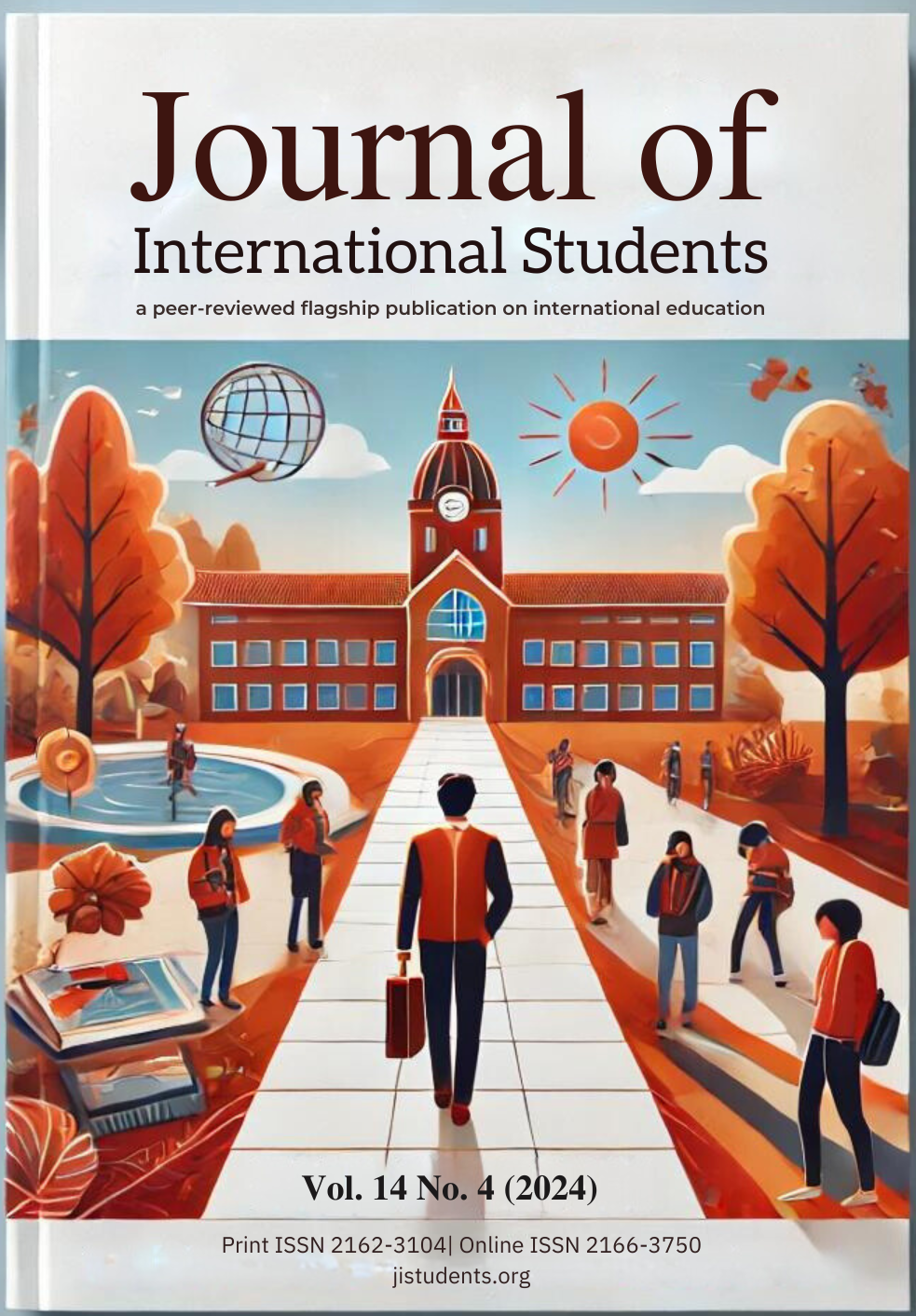Belonging as a post-secondary inter/national student
Where do I belong?
DOI:
https://doi.org/10.32674/jis.v14i4.6438Keywords:
autoethnography, international students, sense of belonging, immigration.Abstract
International students worldwide increased from two million in 2000 to more than five million in 2017. International students may experience one or more challenges, such as financial issues, language limitations, academic performance, social and cultural differences, discrimination and racism, and identity reconstruction. Many of these challenges affect international students' sense of belonging. The concept of belonging is multi-faceted. We can belong in different contexts, for example, to families, institutions, cultural or ethnic groups, and religions, and we belong at both concrete and abstract levels. As an international student, I used autoethnography to study my sense of belonging as an individual who is also a graduate student. Autoethnography allows the researcher to relate personal experiences to wider cultural, political, and social meanings and understandings. This enabled me to focus on interpreting my core personal narrative, linking my life and story to international students' lives and stories.
Downloads
Published
Issue
Section
Categories
License
Copyright (c) 2024 Journal of International Students

This work is licensed under a Creative Commons Attribution-NonCommercial-NoDerivatives 4.0 International License.
All published articles are licensed under a Creative Commons Attribution-NonCommercial-NoDerivs 4.0 Unported License.















